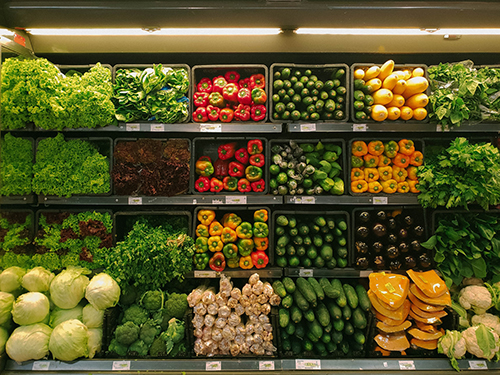Are Ultra-Processed Foods Bad For Our Health?
Are Ultra-Processed Foods Bad For Our Health? We hear from experts and the media to avoid processed foods. But do you know how to identify processed food? What about ultra-processed food? And how exactly does processed food affect our health? We did some digging and tackled these questions. Keep reading to learn more.
Processed vs Ultra-Processed Food
For the sake of your health, it’s worth understanding the difference between processed and ultra-processed food. To start, “UNprocessed” foods are whole foods in their natural (or nearly natural) state. Examples include vegetables, fruit, raw chicken, unsalted nuts, eggs, and seafood.
Foods become “processed” by adding salt, oil, sugar, or other substances. Basically, anything that changes the fundamental nature of an agricultural product – heating, freezing, dicing, juicing – is a processed food. Most processed foods have two or three ingredients, such as canned tuna fish, canned beans/vegetables, fruits in syrup, cheese, or bread.
Ultra-processed foods take things further and are mostly made from substances extracted from foods, such as fats, starches, added sugars, and hydrogenated fats. They may also contain additives like artificial colors and flavors or stabilizers. Examples of ultra-processed foods are frozen meals, soft drinks, hot dogs and cold cuts, fast food, packaged cookies, cakes, and salty snacks. Essentially, anything that is packaged and ready to eat with little work involved is ultra-processed food. They are cheap and convenient. However, they are high in refined carbohydrates, saturated fat, salt, industrial additives, and calories. Alarmingly, Harvard Health reports ultra-processed foods are the main source (nearly 58%) of calories eaten in the US and contribute almost 90% of the energy we get from added sugars.
How Ultra-Processed Food Affects Our Health
Heavy processing of food strips out fiber and nutrients and tosses additives and stabilizers in. The loss of fiber alters how the body digests food, affecting friendly gut bacteria. The classification system NOVA explains that ultra-processed foods are “formulated from industrial ingredients and contain little or no intact foods. By their nature, they are unhealthy and should be grouped together and avoided.” While the industrial ingredients are considered safe, their long-term effects are unknown. The basic problem with ultra-processed foods is that they are not designed with health in mind. Manufacturers prefer to make taste, cost, and shelf life a priority.
A recent study shows subjects consumed about 500 more calories per day on the ultra-processed diet. The ultra-processed participants gained weight versus the un-processed participants who lost weight. The study concluded that limiting ultra-processed foods may be an effective strategy for preventing and treating obesity. Other studies link ultra-processed foods with high blood pressure, cancer, higher risk of cardiovascular disease, heart disease, and cerebrovascular disease.
How Can I Cut Back on Ultra-Processed Food?
- Shop the perimeter of a supermarket. The aisles have a lot of processed food, especially ultra-processed foods.
- Prepare more home-cooked meals without ultra-processed ingredients.
- Consider the Source. If you have trouble figuring out where your food originated, it’s likely highly processed food.
- Don’t be swayed by processed food marketed as “healthy,” “natural,” or “organic.” An organic, natural cookie is still an ultra-processed food.
This article was updated on updated on 11/11/2024.


